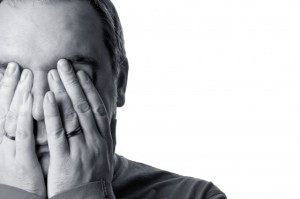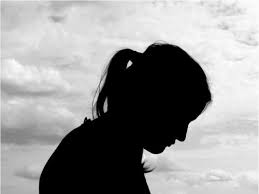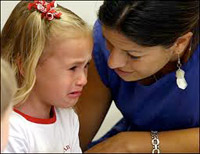WP 3 Individual Resilience
Health Related Outcomes of Disasters
There is growing awareness of the importance of assessing long-term effects of trauma on survivor’s health. The World Health Organization disaster guidelines emphasize the importance of follow-up especially on how survivors benefit from post-disaster and community response.
Disasters can have a negative impact on survivors’ health with post traumatic stress disorder (PTSD) being one of the most serious mental health problem following disasters. PTSD  symptoms can become persistent and develop to more severe physical and mental outcomes if left untreated. It is therefore essential to enhance our understanding of the impact of disasters on survivors’ health and improve responses and interventions in the aftermath of disasters. Furthermore, by targeting risk factors for developing adverse health outcomes, preventive measures can be improved to decrease the suffering of disaster victims.
symptoms can become persistent and develop to more severe physical and mental outcomes if left untreated. It is therefore essential to enhance our understanding of the impact of disasters on survivors’ health and improve responses and interventions in the aftermath of disasters. Furthermore, by targeting risk factors for developing adverse health outcomes, preventive measures can be improved to decrease the suffering of disaster victims.
Individual resilience is divided into 3 tasks:
WP 3.1 Long-term health following natural disasters
Team: UI: Arna Hauksdóttir (WP leader), Edda Björk Þórðardóttir, Unnur Valdimardóttir, Guðrún Pétursdóttir, Berglind Guðmundsdóttir, Hilda Björk Daníelsdóttir, Heiðrún Hlöðversdóttir. SDU: Ask Elklit; SFK: Atle Dyregrov, KI: Christina Hultman
The problem: Studies on the long-term health effects of disasters are rare and results inconclusive. The majority of studies on trauma and health focus on other potentially traumatic events than natural disasters, such as war and abuse. It is important to investigate specific health effects of natural disasters on survivors to identify risk factors for long-term suffering as well as identify protective factors. 
The study: WP3.1 will investigate long-term physical and psychological health following natural disasters, emphasizing injuries, respiratory health (following volcanic eruptions), PTSD, anxiety, depression, psychological stress, sleep related problems and other psychosomatic morbidity. Special emphasis will be on predictors of recovery (demographics, familial and societal support, preparedness and restoration factors).
WP 3.2 Children in natural disasters – health and risk management
Team: SFK: Atle Dyregrov (WP leader); UI: Edda Björk Þórðardóttir, Arna Hauksdóttir; SDU: Ask Elklit, Tóra Petersen; SFK: Heidi Wittrup Djup
The problem: Little is known about the health effects of natural disasters on  children, or how they react to risk communication about potential or happened disasters. Furthermore it is not known at what age or state of development they start accessing and reacting to news about disasters in the media.
children, or how they react to risk communication about potential or happened disasters. Furthermore it is not known at what age or state of development they start accessing and reacting to news about disasters in the media.
The study: WP3.2 will a) study specific health effects of natural disasters on children and b) identify and optimize ways of communicating with children about natural disasters, and c) investigate potential demographic differences in risk perceptions, reactions and understanding.
WP 3.3 Psychosocial support and intervention following natural disasters
Team: SDU: Ask Elklit (WP leader); SFK: Atle Dyregrov, Heidi Wittrup Djup; UI: Berglind Guðmundsdóttir, Edda Björk Þórðardóttir, Arna Hauksdóttir.
The problem: Most people recover quickly from post-disaster mental health problems. However, to serve the long-term suffering minority there is a need for effective and accessible interventions, which function well for large populations.
The study: WP3.3 will a) compile a historical overview of psychosocial support following natural disastersin the Nordic countries, b) develop novel and efficient ways of providing and distributing psychosocial support (self-help, telemedicine, new technology, cell phones (apps) etc.,) and c) develop disaster focused intervention programs, such as school based educational programs and web based psychotherapy (evidence based methods, i.e., CBT) following natural disasters.
